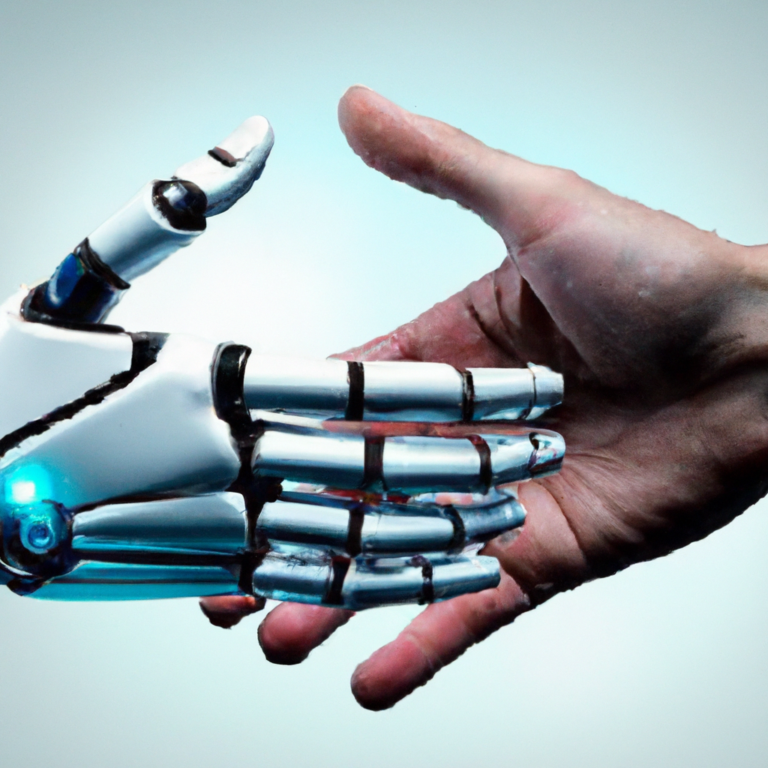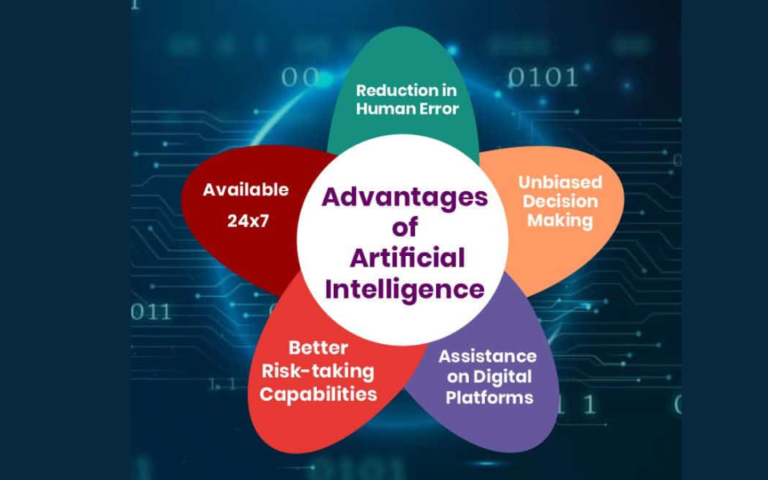AI In Different Fields: How AI Is Being Used In Different Industries And Sectors

In today’s rapidly evolving world, artificial intelligence (AI) has become increasingly prevalent across various fields and industries. From healthcare and finance to education and transportation, AI has made significant strides in revolutionizing the way we live and work. This article explores the diverse applications of AI, highlighting how it is being used in different sectors to enhance efficiency, improve decision-making, and unlock new possibilities. Whether it’s through machine learning algorithms, natural language processing, or computer vision, AI is transforming the way we interact with technology and opening up a world of endless possibilities.

Healthcare Industry
Medical Diagnosis
AI is revolutionizing the field of medical diagnosis by providing accurate and efficient solutions. With the ability to analyze vast amounts of medical data, AI algorithms can detect patterns and anomalies that may go unnoticed by human physicians. By incorporating machine learning techniques, AI systems can not only assist in the diagnosis process but also provide recommendations for treatment options. This technology allows for faster and more accurate diagnoses, leading to better patient outcomes.
Drug Discovery
The process of discovering new drugs can be time-consuming and costly. However, AI is transforming this field by expediting the drug discovery process. With the ability to analyze large sets of data and identify potential drug candidates, AI algorithms can significantly reduce the time and resources required for drug development. By utilizing machine learning and data mining techniques, AI systems can predict the effectiveness and safety of potential drugs, helping researchers prioritize their efforts and accelerate the discovery of new medications.
Robot-assisted Surgery
In recent years, AI has made significant advancements in the field of robot-assisted surgery. By combining robotics with AI algorithms, surgeons can perform complex surgeries with enhanced precision and accuracy. AI-powered surgical robots can analyze real-time data, provide assistance during surgeries, and even make autonomous decisions to optimize surgical outcomes. This technology not only improves patient safety but also allows for minimally invasive procedures, reducing post-operative pain and recovery time.
Health Monitoring
AI is playing a crucial role in revolutionizing health monitoring systems. With the advent of wearable devices and the Internet of Things (IoT), AI algorithms can analyze real-time data from sensors and provide actionable insights about an individual’s health. This technology enables early detection of potential health issues, allowing for timely interventions and personalized treatment plans. AI-powered health monitoring systems also facilitate remote patient monitoring, reducing the need for frequent clinic visits and improving overall patient experience.
Personalized Medicine
AI is transforming the field of personalized medicine by leveraging the power of big data and machine learning algorithms. By analyzing a patient’s genetic makeup, medical history, lifestyle factors, and treatment outcomes, AI systems can generate personalized treatment plans tailored to individual patients. This approach not only improves treatment efficacy but also minimizes adverse side effects. AI-powered predictive models can also help identify patients at higher risk of certain diseases, allowing for proactive interventions and preventive measures.
Finance and Banking
Fraud Detection
AI is playing a crucial role in detecting and preventing fraudulent activities in the finance and banking sector. By analyzing large volumes of data and identifying patterns, AI algorithms can identify anomalous behavior that may indicate fraudulent activities. With machine learning techniques, these algorithms can continuously improve their accuracy and adapt to new fraud patterns. By leveraging AI, financial institutions can prevent financial losses, protect customer information, and maintain the integrity of their systems.
Automated Customer Service
AI-powered chatbots and virtual assistants are transforming customer service in the finance and banking industry. These intelligent systems can handle customer queries, provide support, and offer personalized recommendations. With natural language processing capabilities, AI chatbots can understand customer inquiries and respond accurately and efficiently. By automating customer service tasks, financial institutions can enhance customer experiences, reduce wait times, and improve overall satisfaction.
Investment and Trading
AI is revolutionizing the field of investment and trading by providing sophisticated data analysis and predictive models. AI algorithms can analyze vast amounts of financial data in real-time and identify trends and patterns that may impact investment decisions. By utilizing machine learning techniques, AI systems can generate accurate predictions and recommendations to guide investment strategies. This technology enables traders and investors to make informed decisions, increase profitability, and manage risks effectively.
Data Analysis and Risk Assessment
AI algorithms are increasingly being used to analyze complex financial data and assess risks. These algorithms can analyze historical financial data, market trends, and macroeconomic indicators to identify potential risks and predict market movements. By providing accurate risk assessments, AI-powered systems can assist financial institutions in making informed decisions about lending, investment opportunities, and risk management strategies. This technology helps financial institutions navigate uncertainty and minimize potential losses.
Retail Industry
Inventory Management
AI is revolutionizing inventory management in the retail industry by optimizing stock levels and minimizing stockouts and overstock situations. With the ability to analyze historical sales data, market trends, and customer behavior, AI algorithms can generate accurate demand forecasts and optimize inventory replenishment cycles. This technology enables retailers to reduce costs associated with excess inventory and increase customer satisfaction by ensuring products are readily available.
Demand Forecasting
AI-powered demand forecasting models are helping retailers accurately predict future demand for their products. By analyzing historical sales data, market trends, weather patterns, and other relevant factors, AI algorithms can generate accurate forecasts to guide production and inventory management decisions. This technology enables retailers to optimize their supply chains, minimize stockouts, and reduce excess inventory, leading to improved profitability and customer satisfaction.
Virtual Assistants for Customers
AI-powered virtual assistants, also known as chatbots, are transforming the customer experience in the retail industry. These intelligent systems can handle customer inquiries, provide product recommendations, and assist with purchasing decisions. By leveraging natural language processing and machine learning capabilities, AI chatbots can understand customer preferences, personalize interactions, and offer real-time, 24/7 support. This technology enhances customer engagement, improves satisfaction, and drives sales for retailers.
Visual Search and Recommendation
AI-powered visual search and recommendation systems are revolutionizing the way customers search for and discover products in the retail industry. By analyzing images and recognizing visual patterns, AI algorithms can enable customers to search for products by uploading images or using their smartphone cameras. Additionally, AI systems can provide personalized product recommendations based on customer preferences and browsing history. This technology enhances the shopping experience, increases customer engagement, and boosts sales for retailers.
Dynamic Pricing
AI is transforming pricing strategies in the retail industry through dynamic pricing algorithms. By analyzing market trends, competitor pricing, customer behavior, and other factors, AI algorithms can dynamically adjust prices in real-time to optimize profitability. This technology enables retailers to maximize revenue by offering competitive prices, attracting customers during low-demand periods, and increasing prices during high-demand periods. Dynamic pricing algorithms also enable retailers to personalize prices based on customer segments and preferences, enhancing customer satisfaction and loyalty.

Automotive Industry
Autonomous Vehicles
AI is revolutionizing the automotive industry through the development of autonomous vehicles. By combining sensors, cameras, and AI algorithms, autonomous vehicles can perceive and interpret their surroundings, navigate roads, and make driving decisions without human intervention. AI-powered self-driving cars have the potential to increase road safety, reduce accidents caused by human error, and improve overall transportation efficiency. This technology is expected to transform the way we travel and revolutionize the concept of mobility.
Driver Assistance Systems
AI is enhancing driver safety by powering advanced driver assistance systems (ADAS). AI algorithms can analyze real-time data from sensors and cameras to detect objects, monitor driver behavior, and provide warnings or intervene in critical situations. ADAS technologies, such as lane departure warning, automatic emergency braking, and adaptive cruise control, enhance driver safety and reduce the risk of accidents. AI-powered driver assistance systems are paving the way for a safer and more efficient driving experience.
Predictive Maintenance
AI is transforming the maintenance practices in the automotive industry through the implementation of predictive maintenance models. By analyzing sensor data, vehicle performance metrics, and historical maintenance records, AI algorithms can predict when a vehicle component is likely to fail and recommend preventive maintenance actions. This proactive approach helps automotive manufacturers and service providers optimize maintenance schedules, minimize downtime, and reduce maintenance costs. Predictive maintenance powered by AI improves vehicle reliability and enhances customer satisfaction.
Traffic Management
AI is revolutionizing traffic management systems by providing real-time data analysis and optimization. AI algorithms can analyze traffic patterns, historical data, and real-time sensor information to optimize traffic flow, predict congestion, and recommend alternative routes. By leveraging this technology, traffic management authorities can reduce traffic congestion, improve commute times, and enhance overall transportation efficiency. AI-powered traffic management systems also contribute to minimizing environmental impacts by optimizing fuel consumption and reducing emissions.
Manufacturing Industry
Quality Control
AI is transforming quality control processes in the manufacturing industry by automating inspection tasks and enhancing defect detection rates. By analyzing real-time sensor data and images, AI algorithms can identify defects and anomalies in products with high accuracy and efficiency. AI-powered quality control systems reduce the need for manual inspections, increase production throughput, and improve product quality. This technology also provides valuable insights to identify root causes of defects and optimize manufacturing processes.
Process Optimization
AI is revolutionizing process optimization in the manufacturing industry by utilizing advanced algorithms and data analysis techniques. By analyzing vast amounts of production data, AI systems can identify inefficiencies, bottlenecks, and areas for improvement. AI algorithms can optimize production schedules, resource allocation, and overall manufacturing processes to increase productivity, reduce costs, and enhance product quality. This technology enables manufacturers to achieve operational excellence and maintain a competitive edge in the market.
Predictive Maintenance
Predictive maintenance powered by AI is transforming the manufacturing industry by preventing unexpected equipment failures and minimizing downtime. By analyzing sensor data, historical maintenance records, and equipment performance metrics, AI algorithms can predict when a machine or component is likely to fail and recommend preventive maintenance actions. This proactive approach helps manufacturers optimize maintenance schedules, reduce unplanned downtime, and improve overall equipment reliability. AI-powered predictive maintenance enhances operational efficiency and reduces maintenance costs.
Supply Chain Management
AI is revolutionizing supply chain management in the manufacturing industry by providing real-time data analysis and optimization. AI algorithms can analyze supply chain data, market trends, and historical performance to optimize inventory levels, streamline logistics, and improve overall supply chain efficiency. By automating routine tasks, such as demand forecasting, inventory replenishment, and order management, AI-powered supply chain management systems enhance agility, reduce costs, and improve customer service. This technology assists manufacturers in addressing supply chain complexities and adapting to dynamic market conditions.
Information Technology
Automated Software Development
AI is transforming software development processes through the automation of coding and testing tasks. AI algorithms can analyze existing code, learn from patterns, and generate code snippets or even entire programs. This technology accelerates the development process, reduces the risk of human errors, and increases overall productivity. Additionally, AI-powered testing tools can automatically generate test cases, identify bugs, and even suggest solutions. By automating software development and testing, AI enables faster time-to-market and improves software quality.
Network Security
AI is revolutionizing network security by enabling proactive threat detection and prevention. AI algorithms can analyze vast amounts of network traffic data, identify suspicious patterns, and detect potential threats. By leveraging machine learning techniques, AI systems can continuously learn from new threats and adapt their defense mechanisms to protect against advanced cyberattacks. AI-powered network security solutions enhance resilience, reduce response times, and provide robust protection against evolving cybersecurity threats.
IT Operations Management
AI is transforming IT operations management by automating routine tasks and optimizing system performance. AI algorithms can analyze real-time data from various IT infrastructure components, such as servers, networks, and applications, to detect anomalies, identify performance bottlenecks, and recommend optimization strategies. Additionally, AI-powered predictive models can anticipate system failures and proactively perform maintenance activities. By automating IT operations, AI increases operational efficiency, reduces downtime, and improves system reliability.
Intelligent Chatbots
AI-powered chatbots are revolutionizing customer support and interaction in the IT industry. These intelligent systems can handle customer inquiries, provide technical assistance, and offer self-service options. By leveraging natural language processing and machine learning capabilities, AI chatbots can understand complex queries, provide accurate responses, and even learn from interactions to improve future interactions. AI-powered chatbots enhance customer experiences, reduce support costs, and improve overall customer satisfaction in the IT industry.
Education Sector
Adaptive Learning
AI is transforming education by enabling personalized and adaptive learning experiences. AI algorithms can analyze students’ learning styles, strengths, and weaknesses to tailor educational content and activities accordingly. Adaptive learning platforms powered by AI can provide customized lessons, recommend additional resources, and track students’ progress in real-time. This technology helps educators cater to individual learning needs, improve learning outcomes, and enhance student engagement and motivation.
Intelligent Tutoring Systems
AI-powered intelligent tutoring systems are revolutionizing the way students learn and receive personalized assistance. These systems can adapt to students’ learning styles, provide interactive and engaging lessons, and offer immediate feedback and guidance. By analyzing students’ performance data and learning preferences, AI algorithms can generate personalized learning paths and suggest targeted interventions. Intelligent tutoring systems powered by AI enhance student comprehension, accelerate learning, and promote self-directed learning.
Automated Grading
AI is revolutionizing the grading process in the education sector through automated grading systems. By utilizing machine learning algorithms, AI systems can analyze students’ assignments, quizzes, and exams and assign grades based on pre-defined criteria. Automated grading systems save educators time by eliminating the need for manual grading and provide immediate feedback to students. This technology enables timely assessment, personalized feedback, and supports educators in focusing on instructional activities and providing individualized support.
Personalized Virtual Assistants
AI-powered personalized virtual assistants are transforming student support and guidance in the education sector. These virtual assistants can provide personalized recommendations for academic and extracurricular activities, assist in course selection, and offer career guidance based on students’ interests and goals. By analyzing students’ academic progress, preferences, and performance data, AI algorithms can generate tailored recommendations to support students throughout their educational journey. Personalized virtual assistants enhance student engagement, promote self-discovery, and provide valuable assistance in academic and career decision-making.
Marketing and Advertising
Customer Segmentation and Targeting
AI is revolutionizing marketing and advertising by enabling sophisticated customer segmentation and targeting strategies. By analyzing vast amounts of customer data, AI algorithms can identify distinct customer segments, understand customer preferences, and predict purchase behaviors. This technology enables marketers to customize marketing campaigns, personalize content, and deliver targeted advertisements to specific customer segments. AI-powered customer segmentation and targeting increase marketing effectiveness, improve customer engagement, and drive revenue growth.
Content Generation
AI-powered content generation tools are transforming the way marketers create and distribute content. AI algorithms can analyze existing content, learn from patterns, and generate new content pieces, such as blog posts, social media captions, and product descriptions. This technology accelerates content creation processes, enhances consistency, and increases production scalability. Additionally, AI-powered content generation tools can optimize content for search engines, improve SEO rankings, and drive organic traffic. AI enables marketers to streamline content creation, increase content output, and deliver relevant and engaging content to their target audience.
Ad Campaign Optimization
AI is revolutionizing ad campaign optimization by providing real-time data analysis and actionable insights. AI algorithms can analyze campaign performance metrics, customer behavior data, and market trends to optimize ad placements, bidding strategies, and target audience selection. By continuously learning from new data, AI-powered ad campaign optimization technologies can adapt to changing market conditions and fine-tune advertising strategies. This technology helps marketers maximize ad performance, improve return on ad spend, and drive conversions and revenue.
Sentiment Analysis
AI-powered sentiment analysis tools are transforming the way marketers understand customer sentiment and perception. By analyzing social media posts, customer reviews, and other user-generated content, AI algorithms can identify and classify sentiment patterns, sentiments, and opinions of customers towards products, brands, or marketing campaigns. This technology provides valuable insights into customer preferences, helps marketers improve products and marketing strategies, and enables effective reputation management. AI-powered sentiment analysis enhances customer understanding and supports data-driven decision-making in marketing and advertising.
Agriculture Sector
Crop and Soil Monitoring
AI is revolutionizing crop and soil monitoring in the agriculture sector. By analyzing real-time data from sensors, satellite imagery, and weather forecasts, AI algorithms can provide valuable insights into crop growth, soil moisture levels, and nutrient deficiencies. This technology enables farmers to make data-driven decisions about irrigation, fertilization, and crop management practices. By optimizing resource utilization and crop conditions, AI-powered crop and soil monitoring systems enhance agricultural productivity, reduce environmental impacts, and improve overall crop yields.
Precision Farming
AI is transforming precision farming practices by providing accurate and timely data analysis for precision agriculture techniques. By analyzing data from sensors, drones, and other monitoring devices, AI algorithms can generate actionable insights for precise planting, irrigation, fertilization, and harvesting. AI-powered precision farming systems optimize resource utilization, reduce waste, and minimize environmental impacts. This technology enables farmers to increase productivity, improve crop quality, and contribute to sustainable agricultural practices.
Automated Irrigation Systems
AI-powered automated irrigation systems are revolutionizing water management in agriculture. By analyzing real-time data from soil moisture sensors, weather forecasts, and crop water requirements, AI algorithms can optimize irrigation schedules and ensure efficient water usage. These systems can automatically determine when and how much water to apply to crops, helping farmers minimize water waste, reduce costs, and improve crop yields. AI-powered automated irrigation systems support sustainable water management practices and ensure optimal crop growth.
Livestock Monitoring
AI is transforming livestock monitoring practices by providing real-time data analysis for improved livestock management. By analyzing data from wearable sensors, AI algorithms can monitor animal behavior, health indicators, and feeding patterns. These systems can detect anomalies, identify signs of illness or distress, and even provide early warnings of potential diseases or health issues. AI-powered livestock monitoring systems enable farmers to enhance animal welfare, optimize feed utilization, and prevent livestock losses. This technology supports efficient livestock management practices and ensures the overall well-being of the animals.
Energy Sector
Smart Grid Management
AI is revolutionizing smart grid management by enabling real-time data analysis and optimization. AI algorithms can analyze data from smart meters, renewable energy sources, and weather forecasts to optimize energy distribution, accommodate demand fluctuations, and minimize system congestion. These systems can dynamically balance energy supply and demand, integrate renewable sources effectively, and ensure efficient energy delivery. AI-powered smart grid management enhances grid stability, improves energy efficiency, and supports the transition towards renewable energy sources.
Energy Demand Forecasting
AI-powered energy demand forecasting models are transforming the energy sector by providing accurate predictions of energy consumption. By analyzing historical energy usage data, weather patterns, and other relevant factors, AI algorithms can generate accurate forecasts for short-term and long-term energy demand. These forecasts enable utilities to optimize energy generation and distribution, reduce costs, and ensure the reliability and stability of the power grid. AI-powered energy demand forecasting supports efficient energy planning and contributes to the overall sustainability of the energy sector.
Predictive Maintenance of Equipment
AI is revolutionizing equipment maintenance practices in the energy sector through predictive maintenance models. By analyzing sensor data, equipment performance metrics, and historical maintenance records, AI algorithms can predict when a piece of equipment is likely to fail and recommend preventive maintenance actions. This proactive approach helps energy companies optimize maintenance schedules, reduce unplanned downtime, and improve overall equipment reliability. AI-powered predictive maintenance enhances operational efficiency, reduces maintenance costs, and ensures uninterrupted energy supply.
Renewable Energy Optimization
AI is transforming the optimization of renewable energy sources in the energy sector. By analyzing weather patterns, historical data, and energy production metrics, AI algorithms can optimize the deployment and operation of renewable energy systems. These systems can predict renewable energy production, optimize energy storage and distribution, and enhance grid stability. AI-powered renewable energy optimization solutions promote the use of clean energy sources, reduce reliance on fossil fuels, and contribute to a more sustainable and environmentally friendly energy sector.
Want to write articles like us? Get your copy of AI WiseMind here!






